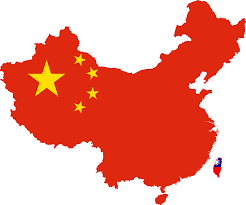Stocks surged and China’s government bonds saw a significant rally after the Politburo indicated a change in its monetary policy, signalling further easing measures in the near future, similar to strategies used during past crises. The benchmark 10-year yields dropped to 1.922%, marking a record low, while Hong Kong’s Hang Seng index rose by 2.8%, reaching its highest level in a month.
China’s economy has faced a slowdown, with the property market collapse severely affecting confidence and consumption. As a result, investors have been hoping for government intervention to stabilise the situation. Following a meeting of senior Communist Party officials, the country revealed plans to adopt a “moderately loose” monetary policy, a shift from the previous “prudent” stance. This change echoes a similar adjustment made in 2010 to help recover from the global financial crisis.
The government also outlined its commitment to stabilising the stock and property markets, focusing on boosting consumption and expanding domestic demand. These actions directly addressed concerns raised by investors. According to Frances Cheung, Head of Asia Rates and Currency Strategy at OCBC in Singapore, this shift raised expectations for more monetary support, including potential interest rate cuts.
The market reacted positively, with the Hang Seng index jumping past the 20,000-point mark, and tech stocks soaring by 4.3%. Other sectors, from banking to property and consumer goods, also experienced significant gains. Chinese shares listed in Hong Kong saw a 3.1% increase. Analysts pointed out that the explicit mention of stock and property markets was noteworthy, highlighting the government’s focus on these areas.
Despite previous scepticism from foreign investors, Victoria Mio from Janus Henderson Investors noted that the policy changes indicated a sense of urgency, particularly with expected trade tensions with the U.S. The Hang Seng has risen by 12%, and China’s CSI 300 index has climbed 23% since late September, following rate cuts and measures to support the property sector and revive consumer spending.
This rally has extended to the bond markets, with yields on long-term bonds reaching new lows as investors anticipate further interest rate cuts. The 10-year yields have dropped by approximately 70 basis points this year. Experts, including Ken Cheung from Mizuho Bank, expect the new policies to boost China’s economic growth in the coming year as more fiscal and monetary measures are introduced.
The Politburo’s meeting precedes the annual Central Economic Work Conference, which will set the key targets and policy intentions for the following year.
Fidelity China Special Situations PLC (LON:FCSS), the UK’s largest China Investment Trust, capitalises on Fidelity’s extensive, locally-based analyst team to find attractive opportunities in a market too big to ignore.

